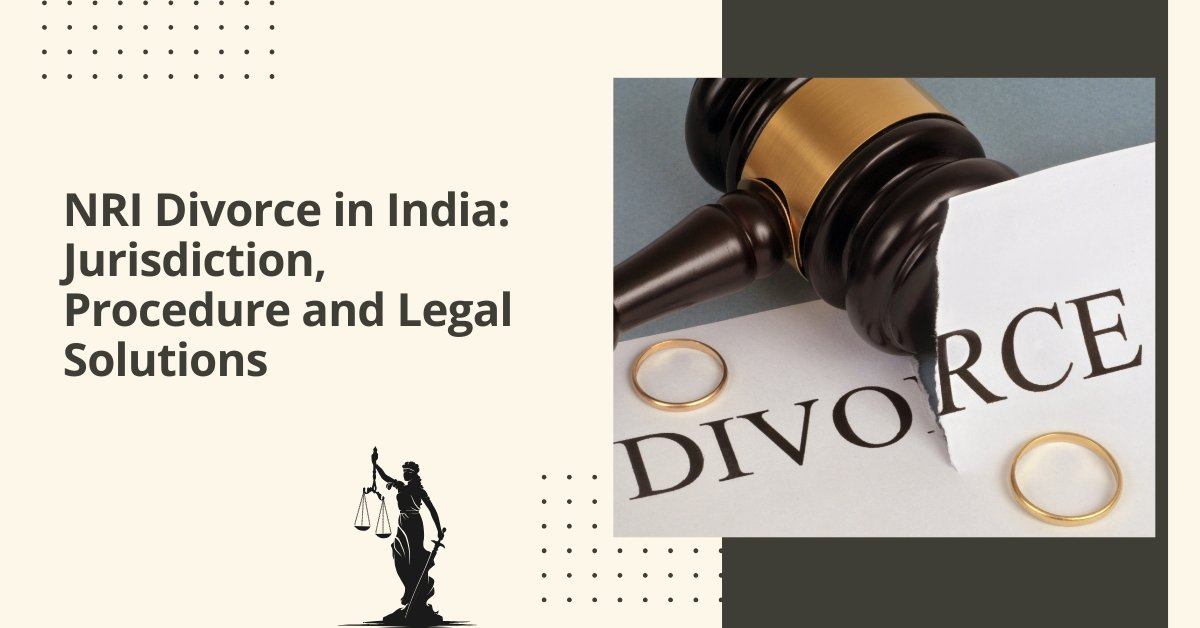Divorce and Religion: Beliefs, Laws and Impact
Divorce is a deeply personal decision, but it is also shaped by social, legal, and religious frameworks. In many societies, religion plays a powerful role in defining the values around marriage, the conditions for its dissolution, and the post-divorce life of individuals. Understanding how different religions perceive and govern divorce is crucial for anyone navigating this emotional and legal transition.
This blog explores how major world religions view divorce, how religious beliefs intersect with legal systems, and the broader psychological and societal impacts. We also highlight how one can approach divorce with the right legal and emotional support, especially in culturally sensitive environments like India.
Understanding the Role of Religion in Marriage and Divorce
Religion has traditionally upheld marriage as a sacred institution. Most faiths view it not just as a civil contract but as a spiritual bond blessed by a higher power. Consequently, divorce can be viewed not only as a legal separation but also as a moral or spiritual failure, depending on the religion.
This religious lens can influence:
- The ease or difficulty of obtaining a divorce
- Gender roles and rights within divorce
- Remarriage rules post-divorce
- Social stigma and community perception
Let’s take a closer look at how specific religions perceive and regulate divorce.
Divorce in Hinduism
Hinduism regards marriage as a sacrament (samskara) rather than a contract. Traditionally, it emphasized the lifelong unity of husband and wife, with limited scope for separation.
However, modern Hindu personal law, guided by the Hindu Marriage Act of 1955, permits divorce under specific conditions such as cruelty, desertion, mutual consent, and adultery. These legal provisions reflect a more progressive view compared to historical Hindu practices.
Yet, in many orthodox families, divorce still carries a heavy stigma. Women, in particular, may face social exclusion or judgment, making it crucial to approach divorce with both legal guidance and emotional resilience.
Divorce in Islam
Islam acknowledges that while marriage is favored, divorce (talaq) is permissible when necessary. The Qur’an provides clear guidelines for divorce procedures, including waiting periods (iddah), financial maintenance, and attempts at reconciliation.
There are various types of divorce in Islamic law:
- Talaq (by the husband)
- Khula (by the wife with the husband’s consent)
- Faskh (judicial annulment)
Islam encourages both partners to seek arbitration before opting for separation. However, interpretation and implementation can vary across cultures and sects. In India, Muslim Personal Law governs these matters, though the Supreme Court has outlawed instant triple talaq for being unconstitutional.
Divorce in Christianity
Christianity traditionally holds marriage as a sacred, unbreakable covenant. While teachings vary across denominations, most encourage couples to work through their differences.
- Catholicism does not permit divorce but allows annulment under specific conditions, stating the marriage was never valid.
- Protestant denominations are generally more accepting of divorce, especially in cases of abuse, adultery, or abandonment.
- Orthodox Christianity permits divorce and remarriage but only under stringent conditions.
The moral weight of divorce in Christian communities can lead to internal conflict for believers. Many may seek pastoral counseling or spiritual guidance alongside legal help.
Divorce in Buddhism
Buddhism takes a more neutral stance on divorce. It does not consider marriage a religious obligation and therefore does not impose spiritual penalties for separation.
Compassion and mutual respect are key principles. If a relationship causes suffering or no longer supports spiritual growth, divorce is seen as a practical decision rather than a moral failure.
Buddhist countries like Thailand and Sri Lanka have civil divorce laws influenced more by culture and governance than religious texts.
Legal vs. Religious Divorce: The Dual Challenge
One of the most complex aspects of divorce in religious societies is navigating the difference between legal and religious divorce. In many cases, a civil divorce may not be enough for someone to remarry within their faith or gain community acceptance.
For example:
- A woman legally divorced in court may still need a get (Jewish divorce document) from her husband to remarry within Judaism.
- In Islam, a khula requires mutual agreement and often arbitration, even if the court grants a divorce.
This overlap can delay the healing process or lead to psychological distress. Having the right legal counsel who understands both secular and religious nuances is key.
Psychological and Social Impact of Divorce in Religious Contexts
The emotional toll of divorce can be amplified in communities where it is frowned upon or rarely discussed. Religious guilt, family pressure, and social isolation often compound the trauma.
Some common psychological effects include:
- Depression and anxiety
- Loss of spiritual identity or faith crisis
- Stigma or alienation in community or family circles
- Pressure to remarry quickly or stay celibate
Support groups, therapy, and spiritual counseling can be immensely helpful. It’s important for individuals to rebuild their identity and self-worth without fear of judgment.
Navigating Divorce in India: Legal Help Matters
India’s diverse population means that religious personal laws heavily influence family matters, including divorce. While secular acts like the Special Marriage Act provide uniform legal procedures, many still opt for divorce through religious channels, which can be complex.
This makes it essential to work with legal professionals who understand the intersection of law, religion, and culture. If you’re facing a difficult divorce situation, especially one complicated by religious constraints, seeking the best divorce lawyer in Pune can help protect your rights while respecting your beliefs.
A good divorce lawyer can:
- Clarify your rights under personal or secular law
- Help manage custody, alimony, and property settlements
- Handle sensitive negotiations with religious or community leaders
- Represent you with compassion and cultural awareness
Final Thoughts: A Balanced, Respectful Approach
Divorce is never easy, especially when religion plays a central role in your life and community. But with the right support—legal, emotional, and spiritual—it is possible to navigate this transition with dignity and hope.
Each religion has its own guidelines, but most share a common thread: compassion, responsibility, and the sanctity of human dignity. Whether you are ending a marriage due to incompatibility, abuse, or mutual respect, your journey deserves understanding—not shame.
Take time to educate yourself, seek trustworthy legal help, and surround yourself with supportive voices. Divorce, when handled wisely, can be not just an end, but a new beginning.
Most Recent Posts
Category
Explore Our Services
Empower Your Future with Expert Legal Guidance. Consult with Leading Divorce Lawyers at Adv.Mayur N. Gajbhiye for Professional, Compassionate Representation, Ensuring a Smooth and Informed Legal Journey.








